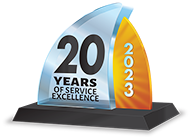
Quickly Locate SAP’s in Maryland for Safety Sensitive Employees
Did you recently fail a drug and/or alcohol test and are looking for a DOT SAP in Maryland? As an employee performing safety-sensitive functions in the transportation industry, you are responsible for providing a safe work environment for your co-workers and the traveling public. “Creating a safe work environment not only means following established work […]

Why Do I Need to Find a DOT Qualified SAP Professional?
If you’re a Department of Transportation mandated, safety-sensitive employee and you fail a drug and/or alcohol test, according to the DOT guidelines, you have to complete the return to duty process with a DOT qualified Substance Abuse Professional before you can resume your safety-sensitive duties at work. If you need to find a DOT qualified […]

SAP Evaluation: What to Expect
As an employee, you may have been ordered to undergo a SAP evaluation, or as an employer you may be wondering when to send your employee for an evaluation. Safety-sensitive employees must submit to drug and/or alcohol tests upon preemployment, at random, after certain accidents, with reasonable suspicion, and before returning to safety-sensitive work following […]

SAP Programs in Colorado: Start Your Return to Duty Process Today!
If you work in a safety-sensitive position and are a DOT-regulated employee but have violated a DOT alcohol or drug testing regulation, you’re not allowed to perform safety-sensitive duties until you meet with a DOT-qualified Substance Abuse Professional (SAP) and have complied with the return-to-duty process. Looking for a SAP in your area? Don’t worry, […]

Find SAP Professionals Quickly!
If you have been told that you need to find SAP professionals following a failed drug and alcohol test, it is important to ensure they are licensed and practicing in your area so you can get back to work. As a DOT safety-sensitive employee, once you are removed from your safety-sensitive duties you are not […]

“Substance Abuse Professional Near Me” Not Turning Up Results?
You have just been relieved from your safety sensitive duties due to a positive drug and/or alcohol test result and you have to find a Substance Abuse Professional (SAP) to get back to work. The only problem is every time you search for “Substance Abuse Professional near me” you can’t find a SAP in your […]

DOT Qualified SAP and the Substance Abuse Professional List
If you work for a DOT-mandated safety-sensitive employer, then you are required to take random and planned drug and alcohol testing throughout your career. If you fail or refuse to take a drug and alcohol test then you will either be given a Substance Abuse Professional list, or a referral to a service agent, from […]

Reasonable Suspicion Testing: How Does it Impact My Employees?
Looking for a SAP provider in New York for your employees? If you have DOT-mandated employees, such as drivers of hazardous materials, air traffic controllers, and people in other safety-sensitive jobs in one of the transportation industries, then they are required to submit to a variety of drug and alcohol tests. These include random tests, […]

Looking for a SAP Provider in Virginia?
Have you recently failed a drug and/or alcohol test and are looking for a SAP provider in Virginia, or anywhere nationwide, to help you through the SAP process? The Department of Transportation (DOT) defines safety-sensitive employees as those working in jobs in which they are responsible for their own safety or the safety of others. […]

How Can I Find a DOT Qualified SAP for my Employees?
A DOT safety-sensitive employee performs a job that impacts the public’s safety. This type of employee is required to be tested for drugs and/or alcohol during pre-employment, random testing, reasonable cause or suspicion, return-to-duty, or follow-up testing. Should they fail the regulated drug tests, they will immediately be removed from their safety-sensitive duties. Their employer […]


